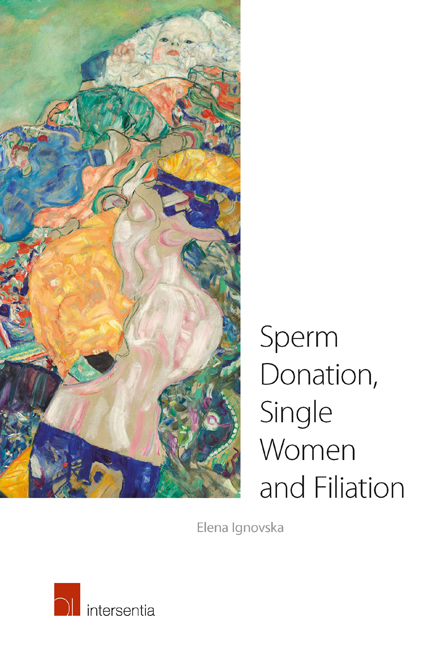Book contents
- Frontmatter
- Dedication
- Foreword
- Contents
- List of Abbreviations
- Introduction
- PART I MAPPING THE TERRAIN FROM AN INTERDISCIPLINARY AND INTERNATIONAL PERSPECTIVE
- PART II THE LEGAL, ETHICAL AND SOCIOLOGICAL POSITIONS OF THE PARTICIPANTS
- PART III LEGAL WAYS OF ESTABLISHING FATHERHOOD
- Chapter 7 Establishing Fatherhood through an International Prism
- Chapter 8 Applying the Results of the Analysis in the Case of the Republic of Macedonia
- References
Chapter 7 - Establishing Fatherhood through an International Prism
from PART III - LEGAL WAYS OF ESTABLISHING FATHERHOOD
Published online by Cambridge University Press: 12 December 2017
- Frontmatter
- Dedication
- Foreword
- Contents
- List of Abbreviations
- Introduction
- PART I MAPPING THE TERRAIN FROM AN INTERDISCIPLINARY AND INTERNATIONAL PERSPECTIVE
- PART II THE LEGAL, ETHICAL AND SOCIOLOGICAL POSITIONS OF THE PARTICIPANTS
- PART III LEGAL WAYS OF ESTABLISHING FATHERHOOD
- Chapter 7 Establishing Fatherhood through an International Prism
- Chapter 8 Applying the Results of the Analysis in the Case of the Republic of Macedonia
- References
Summary
The growing interest in giving children a central position with a legal emphasis on their autonomy and priority of their rights has led to their procedural rights, but also to greater complexity in court proceedings concerning attribution and exercise of parental responsibilities in Europe and in the USA.
The history of international regulations dealing with the establishment or contestation of a parent–child relationship in Europe can be traced to the activities of the International Commission on Civil Status (ICCS) and its consequential conventions: the Convention Extending the Competence of Authorities Empowered to Receive Declarations Acknowledging Natural Children (Rome, 14 September 1961), the Convention on the Establishment of Maternal Descent of Natural Children (Brussels, 12 September 1962), the Convention on Legitimation by Marriage (Rome, 10 September 1970) and the Convention on the Voluntary Acknowledgement of Children Born Out of Wedlock (Munich, 5 September 1980). The identity status in terms of name and forename, extracts from civil status records concerning (inter alia) the birth of the child, and the international exchange of information relating to it have been regulated in the following conventions and recommendations: the Convention on Changes of Surnames and Forenames (Istanbul, 4 September 1958), the Convention on the Law Applicable to Surnames and Forenames (Munich, 5 September 1980), the Convention on the Recognition of Surnames (Antalya, 16 September 2005), the Convention on the Issue of Certain Extracts from Civil-Status Records for Use Abroad (Paris, 27 September 1956), the Convention on the International Exchange of Information Relating to Civil Status (Istanbul, 4 September 1958) and its Additional Protocol (Patras, 6 September 1989), the Recommendation Relating to the Publicity of Civil-Status Registers and Records (Lisbon, 10 September 1987), the Recommendation Relating to the Harmonisation of Civil-Status Records (Lisbon, 10 September 1987), and the Recommendation on the Harmonisation of Extracts from Civil Status Records (Madrid, 7 September 1990).
The Commission on European Family Law (CEFL) was established in 2001 comprising approximately 26 distinguished experts in the field of family and comparative law from all European Union Member States and other European countries. The main goal was to launch a pioneering theoretical and practical ground on the path towards harmonising family laws in Europe.
- Type
- Chapter
- Information
- Sperm Donation, Single Women and Filiation , pp. 269 - 306Publisher: IntersentiaPrint publication year: 2015

